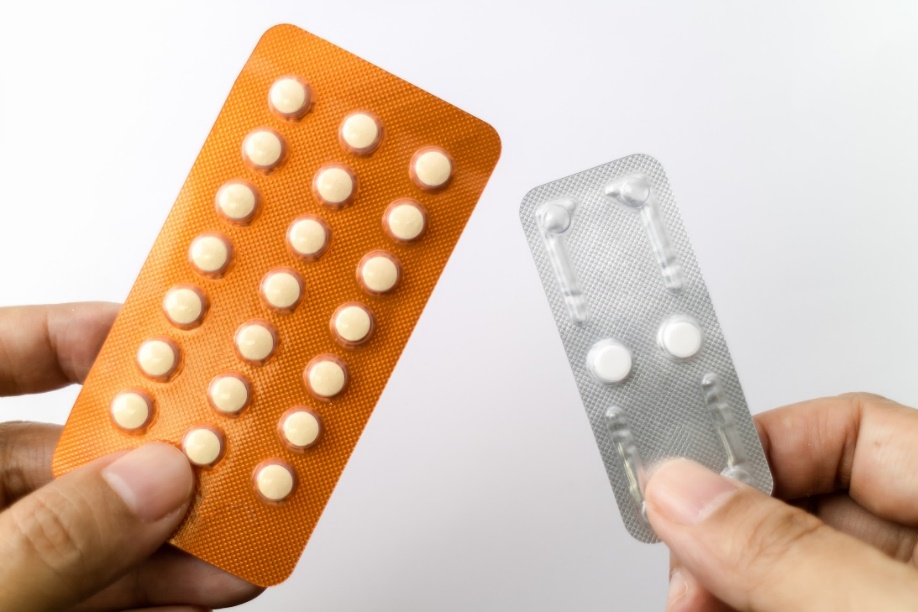- tabletkapo.sk
- healthdirect.gov.au - 'Morning after' pill (emergency contraception pill. Health Direct.)
- ncbi.nlm.nih.gov - Emergency contraception review: evidence-based recommendations for clinicians. Kelly Cleland, MPA, MPH, Elizabeth G. Raymond, MD, MPH, Elizabeth Westley, MPH and James Trussell, PhD
- ir.library.oregonstate.edu - Emergency contraceptive pills and college women: factors influencing intention and use. Nelson, Heather A.
The pill "po": what are its effects, reliability and health risks?

The "po" pill is a disposable emergency contraceptive that prevents a woman from getting pregnant unintentionally. What is the effectiveness and reliability of this pill? Does it carry health risks?
Article content
Tablet after - ECP
The po pill is included in a group of drugs called ECP (emergency contraceptive pills). It is also known as postcoital contraception, i.e. protection only after sexual intercourse.
Its main aim is to prevent possible pregnancy 72-120 hours after sexual intercourse (the time limit depends on the product). The pill is taken by a woman orally (by swallowing the tablet).
This is an emergency situation when a conventional contraceptive method has failed or no contraceptive method has been used by mistake.
Regular use of the pill is inappropriate because of the health risks to women.
It should be stressed that the morning-after pill does not serve as a substitute for a contraceptive method.
The po pill is not usually tied to a prescription and is freely available from a pharmacy. It should be taken orally as soon as possible. There are only 1-2 pills in a packet, which must be taken with sufficient water.
On the day of taking the tablet, rest is recommended.
It is recommended to take the tablet as soon as possible after unprotected sexual intercourse.
When can the tablet be taken?
- If the standard contraceptive method used has failed
- If you have made a mistake when using standard contraception
- If you did not use any contraception during intercourse
- If you have taken other medicines that may have reduced the effectiveness of your contraception
The effectiveness of the pill after
If the pill is taken within 24 hours after unprotected intercourse, its effectiveness is up to 99%. This is high effectiveness, but 1% of women will become pregnant even though they took the pill correctly and on time after intercourse.
If ECP is taken later than 72 hours, the effectiveness of contraception decreases.
The highest percentage of effectiveness is when the pill is taken within 24 hours after unprotected intercourse.
One hundred percent effectiveness of the pill is not possible. Once the egg (the woman's sex cell) is already expelled from the ovary and the fertilized egg has nested in the uterus, the pill becomes non-functional in the woman's body.
It is inappropriate to take the pill after if a woman is allergic to the hormone levonorgestrel.
On what principle does the po pill work?
The po pill contains one high dose of the progestin hormone levonorgestrel. This female hormone prevents ovulation, which is the release of an egg from a woman's ovary and its descent into the fallopian tube and uterus.
If the egg is not released, the male sperm cell cannot fertilise the egg.
One dose of the po pill contains approximately ten times the amount of hormone than taking 1 pill of regular hormonal contraception.
It should be noted, however, that the po pill is not an abortion pill. It does not prevent the fertilized egg from settling in the uterus, nor does it terminate the pregnancy. The pill therefore does not have an abortifacient effect.
The po pill does not protect against HIV infection or other sexually transmitted diseases (STDs).

Health risks and side effects of taking the po pill
The manufacturers do not recommend taking the po pill on a regular and long-term basis. They do not recommend taking the po pill more than once per menstrual cycle.
If you take the ECP pill more than once during one menstrual cycle, there is a higher chance that the pill may disrupt the course of a woman's menstrual cycle.
It is advisable to consult taking the po pill if a woman is under 18, is unsure of her allergy to the hormone levonorgestrel, or has a serious diagnosis such as venous thrombosis, liver disorders, or cancer.
Because of the one-time higher dose of the hormone, a woman may experience side effects:
- Mild lower abdominal pain
- Headache, migraine
- Increased fatigue
- Nausea, feeling like vomiting
- Change in mood and anxiety
- Change in length of next menstrual period
- Disruption in the length of the menstrual cycle
When should a woman contact a doctor after taking the pill?
- If your next period is more than 5 days late
- If the next menstrual period is unusual
- If she has sudden or unusual pain in the lower abdomen
- If she has any concerns about her health or the type of contraception
If pregnancy and child conception is an unwanted condition, it is advisable to use an available contraceptive intended for regular use.
It is advisable to consult a gynaecologist about the choice of a protective sexual device, taking into account the woman's state of health and the prevention of sexually transmitted diseases.
The difference between the abortion pill and the post-abortion pill
A pill intended for abortion is a completely different kind of medicine on a different functional principle and content of substances.
It stops the progress of pregnancy and the development of the child. The abortion pill terminates the woman's pregnancy and subsequently the fetus is expelled outwards through the uterus.
These drugs are approved for use in early termination of pregnancy, but not in all countries. The use of abortion pills is controlled under the supervision of doctors.
Unlike emergency contraception pills, abortion pills can never be bought in a pharmacy without a prescription.
The most common problems that women associate with taking the abortion pill after
I threw up after taking the po pill. What to do?
After taking the emergency contraceptive pill, a certain minimal number of women may experience nausea that results in actual vomiting.
If vomiting has occurred within 3 hours after taking the pill, it is advisable to take one more emergency pill again. If the woman has not vomited within 3 hours after taking the pill orally, the pill has been absorbed into the woman's system.
How does taking the pill after missing my period affect my period?
In a large number of cases, the pill does not affect the course of the next menstrual period. However, it is possible that due to hormones, menstruation comes a few days earlier or later.
It is also possible the presence of a slight "spotting" (weak bleeding). In case of doubts and uncertainties, it is always necessary to consult a doctor, a gynecologist.
What if I took the pill after and I was already pregnant?
The emergency contraceptive pill is not an abortion pill. It has no effect if the woman is already pregnant. It does not harm the pregnancy or the development of the child.
However, because of the high dose of hormones and the importance of hormonal balance in pregnancy, do not take another pill after if you are pregnant. If you are unsure, ask your doctor.
How does a woman know that the po pill has actually worked?
A woman will only know that the post-coital emergency contraceptive pill has worked when she has her next period at the expected time.
If menstruation is more than 5 days late or has unusual symptoms, the woman should contact her gynaecologist.
Why can't I take the pill regularly?
Taking ECP tablets regularly and taking the tablets more than once per menstrual cycle can cause disruption in the regularity and length of the menstrual cycle, hormonal imbalances and other possible health side effects due to the woman's health condition.
Therefore, the emergency contraceptive pill is not a substitute for conventional contraceptive methods. Consult your doctor when choosing a method of protection.
Interesting resources










